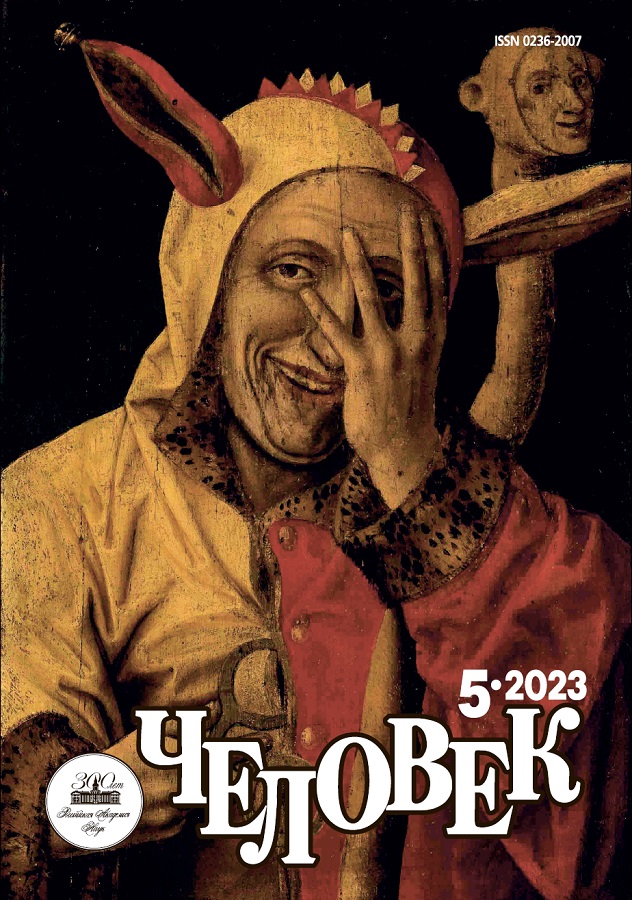The System-communicative Theory: Structure, Anomalies, Application
- 作者: Antonovskiy A.Y.1, Pogozhina N.N.2
-
隶属关系:
- RAS Institute of Philosophy
- Lomonosov Moscow State University
- 期: 卷 34, 编号 5 (2023)
- 页面: 7-28
- 栏目: The philosophy of the himan being
- URL: https://archivog.com/0236-2007/article/view/670647
- DOI: https://doi.org/10.31857/S023620070028498-4
- ID: 670647
如何引用文章
详细
The article provides a critical analysis of the main theoretical provisions of the system-communicative approach. As a starting point, the premise of communicative interaction is considered as a substrate of any public interactions, the foundation of social as such, which is conceptually justified in the works by N. Luhmann. It demonstrates both the methodological success of the use of system-communicative theory within a wide range of social fields of knowledge (sociology, epistemology, economics, political theory, psychology, art research, etc.), and a number of internal limitations (in legal theory, in the study of religious practices). Structure-forming developments of the conceptual apparatus of system-communicative theory are discussed, for example, the concepts of “media” and “form” proposed in the social psychology by F. Heider. The authors reconstruct the theoretical framework of the system analysis of communication on the basis of fundamental differences in act/experience, Ego/the Other and the comparison of the fields of their combinations and constellations. The empirical outcomes of the systemic view of communication are examined in detail, during which anomalies are identified — some gaps, or problem areas, or systemic inconsistencies in the course of communicative interaction within the framework of the proposed unified scheme of the ratio of combinations/constellations of distinctions. Special attention is paid to comparing and identifying the specifics of scientific and political communicative subsystems. Behind the first is approved a special type of system-communicative rationality, justifies the doubling of the binary true/false code in the application to scientific knowledge, proposes a variant for solving Gettier's paradox by system-communicative theory, and also notes the potential of system-communicative theory in ranking types of scientific knowledge, due to the evolutionary selection mechanism as part of the methodological basis of system-communicative theory. The political communication subsystem is provided by the authors for analysis in a system voltage with a scientific one, during which algorithms of rational re-entry and self-reproduction are revealed according to the means of binary oppositions and connections of actors (power, social movements, mass media, etc.).
作者简介
Alexander Antonovskiy
RAS Institute of Philosophy
ORCID iD: 0000-0003-4209-8213
12/1 Goncharnaya Str., 109240 Moscow, Russian Federation
Natalya Pogozhina
Lomonosov Moscow State University
ORCID iD: 0000-0002-5529-817X
27 bld. 4 Lomonosovsky Ave., GSP-1, 119991 Moscow, Russian Federation
参考
- Антоновский А.Ю. Зачем науке лузеры? О перепроизводстве научного знания и его функции // Эпистемология и философия науки. 2023. Т. 60, № 2. С. 75–93.
- Кун Т. Структура научных революций / пер. с англ. И.З. Налетова, общ. ред. и послесловие С.Р. Микулинского, Л.А. Марковой. М.: Прогресс, 1977.
- Кэмпбелл Д. Эволюционная эпистемология // Кэмпбелл Д. Эволюционная эпистемология: антология / науч. ред. и сост. Е.Н. Князева; гл. ред. и авт. проекта С.Я. Левит. М., СПб.: Центр гуманитарных инициатив, 2012. С. 141–178.
- Луман Н. Власть / пер. с нем. А.Ю. Антоновского. М.: Праскис, 2001.
- Луман Н. Истина, знание, наука как система / пер. с нем. А.Ю. Антоновского. М.: Логос, 2016.
- Луман Н. Медиа коммуникации // Луман Н. Общество общества: [в 5 ч.]. Ч. 2/ пер. с нем. А. Глухов, О. Никифоров. М.: Логос, 2005.
- Луман Н. Эволюция науки // Эпистемология и философия науки. 2017. Т. 52, № 2. С. 215–233.
- Хайдеггер М. О сущности истины / пер. с нем. З.Н. Зайцевой // Хайдеггер М. Разговор на проселочной дороге. М.: Высшая школа, 1991. C. 8–27.
- Baecker D. Kommunikation als Selektion. Schlüsselwerke der Systemtheorie, Baecker D. (eds). Wiesbaden: Springer VS, 2021.
- Gettier E. Is Justified True Belief Knowledge? Analysis. 1963. Vol. 23, N 6. P. 121–123.
- Heider F. Ding und Medium. Symposium: Philosophische Zeitschrift fur Forschung und Ausprache. 1927. Vol.1. P. 109–157.
- Heider F. The psychology of interpersonal relations. New York: John Wiley & Sons, 1958.
- Luhmann N. Die Gesellschaft der Gesellschaft. Frankfurt: Suhrkamp Verlag. 1998.
- Meho L.I. The Rise and Rise of Citation Analysis. Physics World. 2007. Vol. 20, N 1. P. 32–36.
- Merton R.K., Barber E. The Travels and Adventures of Serendipity: A Study in Sociological Semantics and the Sociology of Science. Princeton, NJ: Princeton University Press, 2004.
- Merton R.K. On the Shoulders of Giants. New York: Harcourt Brace Jovanovich, 1985.
- Sellars W. Empiricism and the Philosophy of Mind. Minnesota Studies in the Philosophy of Science, Vol. I, H. Feigl, M. Scriven (eds.). Minneapolis, MN: University of Minnesota Press, 1956. P. 253–329.
- Stichweh R. Introduction: How to Conceive Global Function Systems? Soziale Systeme. 2018. Vol. 23, N 1–2. P. 3–14.
- Weber M. Wissenschaft als Beruf. Berlin: Matthes & Seitz Verlag, 2017.
补充文件









